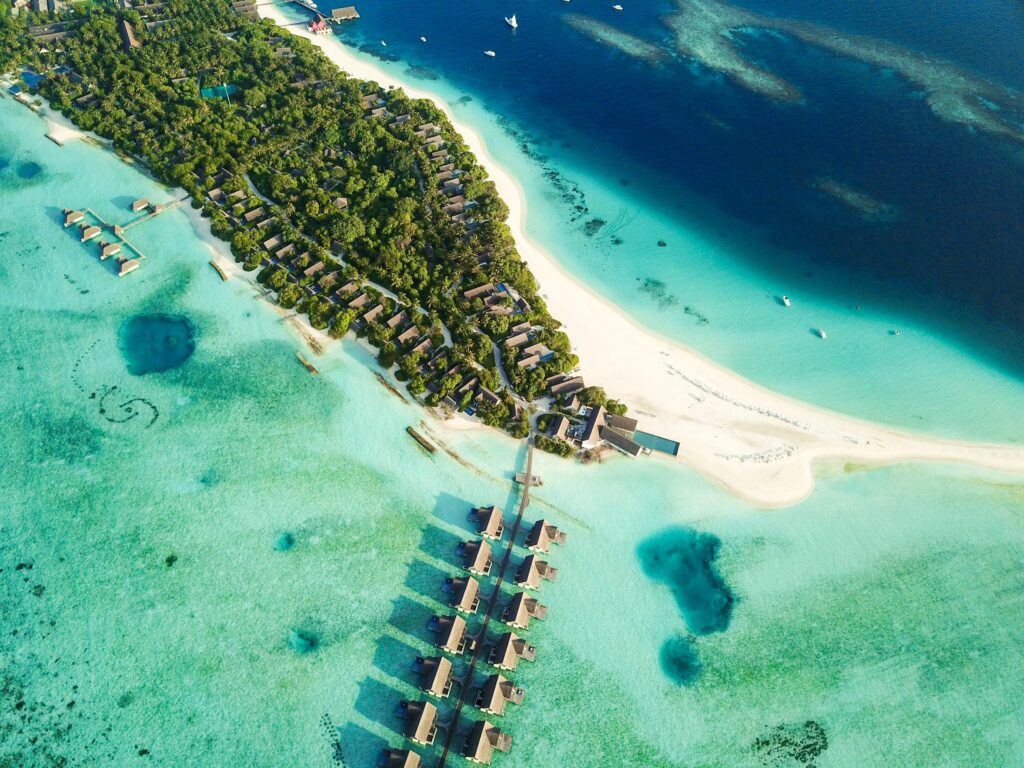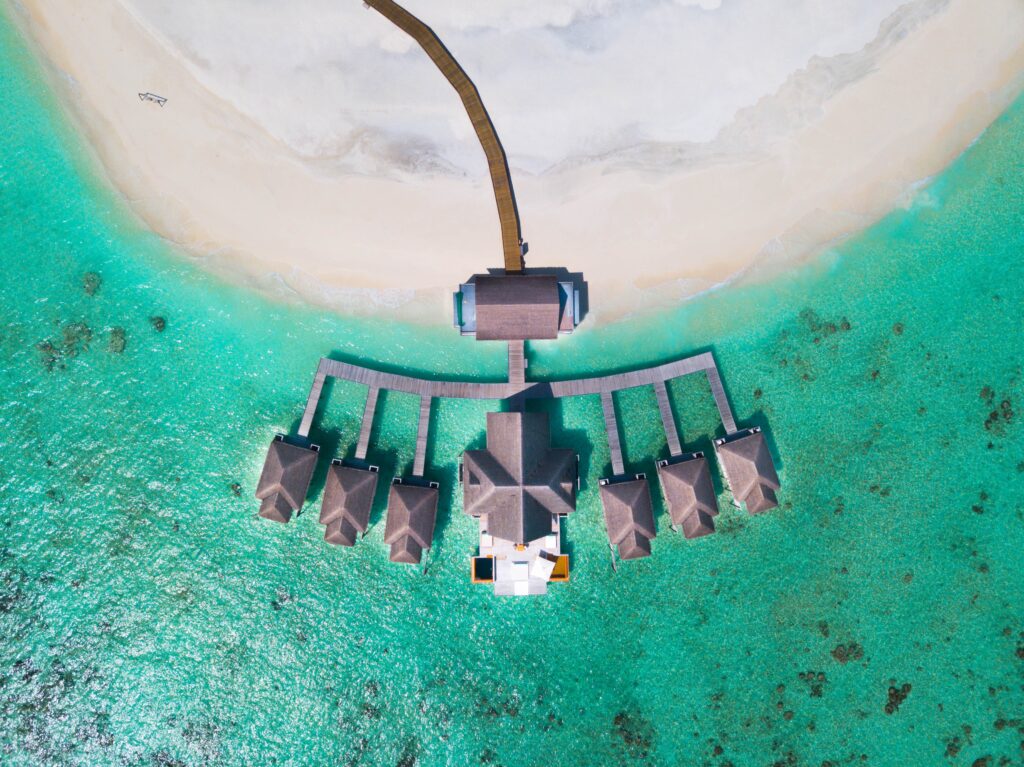
Acquiring a Maldives Resort: 7 Factors
As we look forward to unlocking our borders, reopening the country for tourists and salvaging the economy from the crisis inflicted on it by Covid-19, conversations from strategic and financial buyers are making subtle hints at the prospects of economic opportunity borne out of the pandemic. In addition to the prospects over likely debt financing and refinancing opportunities, it is evident that potential acquisition of tourism properties in the Maldives is also within their discussions.
As these discussions gradually take shape, inquiries trickle in on the legal terrain in which transfer of property happens in the country.
It may be helpful for any potential investor contemplating acquisition of a Maldives resort property from an existing owner to consider a few relevant factors as background.
Asset vs Stock
First, the incoming investor may want to determine if the acquisition is to happen by way of asset sale or stock sale. An asset sale will be the sale and transfer of leasehold rights over an island, and stock sale would be the acquisition of shares in a company holding a tourism lease.
In the first scenario, there is complete severance of ownership, possession and control from the existing owner. In the latter scenario, nothing changes before the law or theatrics in terms of ownership, possession or liabilities, and the incoming investor enters the company via backstage.
The Maldives law recognizes both routes. However, it is often encouraged to insist on a sale and transfer of the leasehold rights. This is clearly a more favored path so as to set apart all liabilities that may be associated with the property.
Ownership vs Lease
Second, there is no sale of the island on which a tourism property may stand and operate. A tourist resort is always built on an island that is given on lease by the Maldives Government. Ownership of all state land vests with the government. The relationship between the current owner and the island is set out in an Island Lease Agreement signed with the Ministry of Tourism.
Therefore, in an asset sale, the subject of sale would be the leasehold rights and interests over that resort property including the island on which it is built. However, in a stock sale, it would be the shares of the company which has the leasehold rights to that property.
In an asset sale, the transaction is completed with a tripartite agreement signed amongst the current owner, incoming investor and the Ministry of Tourism. Although it is in fact an agreement of novation, the nomenclature used by Maldives agencies to identify that agreement is a “deed of assignment”.
In a stock sale, the transaction is largely completed with the endorsement of transfer of shares by the Registrar of Companies.
Fifty vs Ninety-nine
Third, the standard lease period granted by an Island Lease Agreement is fifty years counted from the date of the original lease. Therefore, what the incoming investor would effectively purchase would be the remaining unused portion of the lease period. There is no legal basis to reset the leasehold rights in favor of an incoming investor from the date of novation or assumption of the lease.
The law does provide an option to extend a fifty-year lease by another forty-nine years. The incoming investor may, after acquisition of the property, seek to add forty-nine years against a payment specified in the law and meeting certain other statutory requirements to qualify for the ask.
Rent and Fines
Fourth, the lease rent is fixed by law and is not left for negotiation. The lease rent is tied to land area and is presently set at US$8 per square meter per year. The imposition is tied to a classification of land area divided into three bands.
Generally, a resort island with a land area below 200,000 square meters will attract lease rent at the amount obtained when land area in square meters is multiplied by US$8 with a cap of US$1m; a property with a land area between 200,000 to 400,000 square meters would attract a fixed lease rent of US$1.5m; and a tourism property with a land area in excess of 400,000 square meters would have its lease rent set at US$2m.
While all lease rent is calculated on a yearly basis, it is payable in four installments, and each installment is paid in advance of each quarter.
It may also be helpful to look at the exorbitant penalties associated with lease rent which falls behind.
Transfer Process
Fifth, whether it is an asset sale or stock sale, the transfer process is governed by a set of regulations on dealing in rights over a tourism property. The industry professionals identify these regulations as the ‘Grant of Rights Regulations’. They are developed and enforced by the Ministry of Tourism and updated often as and when new policies are introduced.
In a transfer of leasehold or shares, the processes would include discharge of any existing debt often held by a bank (or obtaining its approval for the incoming investor to assume the debt obligation); payment of all dues owing to the government in the form of lease rent or taxes (together with accumulated fines); meeting certain corporate and regulatory processes; and payment of prescribed fees.
In case of an asset sale, there would also be an additional requirement of a public announcement made of the intended transfer and for existing claims (mostly from trade creditors) to be filed with the Ministry of Tourism. The transfer would proceed only when those claims are settled or an arrangement is made to settle them.
Local Vehicle
Sixth, if there is an asset sale, the incoming investor would have to identify a vehicle that would ultimately acquire the property from the current owner. The proposed vehicle may be a company that is incorporated afresh in the Maldives or an entity created elsewhere being re-registered in the country.
For purposes of keeping its exposure local and within Maldives, it is not uncommon to find an investor electing to incorporate a company rather than re-register an overseas entity in the Maldives.
If there is a stock sale, the incoming investor may directly proceed to seek a transfer of shares in the name of its foreign entity without having to incorporate a company or re-register one. In other words, shares of a company may be held by an overseas entity without the need to give that entity a local presence.
Foreign Investor Approval
Seventh, whether it is an asset sale or stock sale, the incoming investor would be required to obtain a foreign investment approval from the Maldives Economic Development Ministry. It is a process by itself.
With that approval in place, an incoming investor may, in an event of asset sale, proceed for incorporation or re-registration of a company to novate the leasehold rights from the existing owner. If the intended transaction is a stock sale, the incoming investor may proceed to acquire the shares of the company holding the leasehold rights to the resort property.
Under the current FDI Policy, an incoming investor would take the automatic approval route in the acquisition of a resort property, as this vertical is open within the tourism industry for hundred percent foreign ownership.
Editor’s note: An abridged version of this article was posted earlier on the blog of Nasheed & Co. This version of the article has been adapted for Hotelier Maldives









